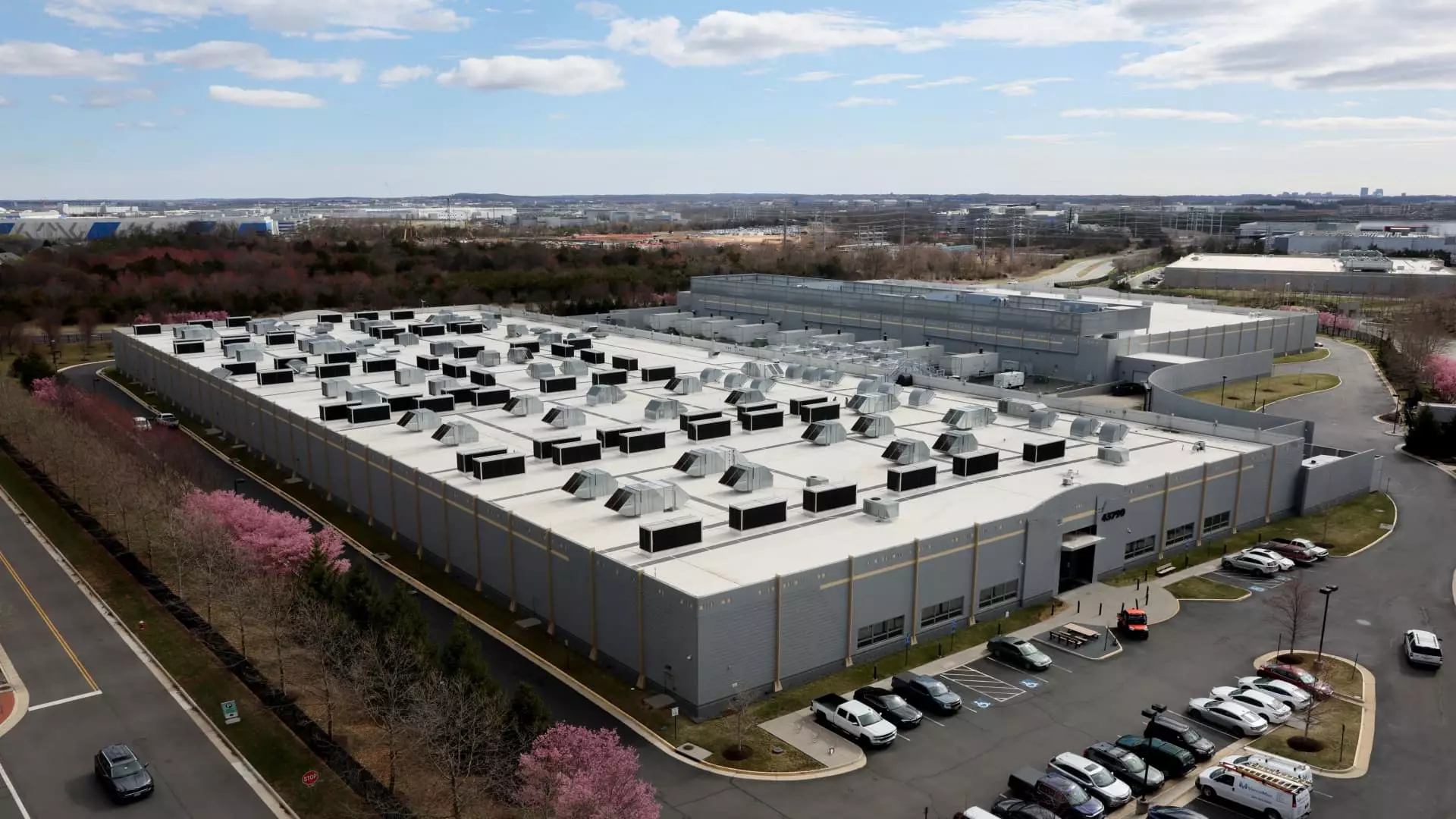The landscape of power generation is poised for monumental shifts, particularly as we face increasing demands propelled by technological advancements and climate imperatives. ADQ, a sovereign wealth fund from Abu Dhabi, has initiated a groundbreaking collaboration with Energy Capital Partners (ECP), an American private equity firm, committing a staggering $25 billion in investments focused on augmenting power generation in the United States. This partnership is strategically significant, reflecting a protracted trend of capital seeking to align with the surging needs of energy-intensive sectors, notably data centers.
In an era where electricity demand in the U.S. has remained relatively stagnant for fifteen years, projections now indicate an impending surge. This pivotal investment partnership illustrates a proactive approach to address the complexities of power needs in a rapidly evolving market. The firms’ joint mission is clear: to establish a resilient infrastructure capable of serving hyperscale cloud operators, data centers, and other demanding industries, where reliable power supply is no longer a luxury but a necessity.
Explosive Growth of Data Centers
Data centers have become synonymous with energy consumption, and their growth trajectory appears to be exponential. According to forecasts from the U.S. Department of Energy, the load growth within data centers has tripled in the past ten years and is set to double or triple by 2028. This presents a unique dilemma: how to satisfy an insatiable demand for electricity while navigating the complexities of sustainable energy practices. With estimates suggesting that data centers may consume over one-third of additional electricity demand by 2026, the urgency for strategic investments like those from ADQ and ECP cannot be understated.
This collaboration marks a fortuitous intersection where capital meets necessity, focusing on developing state-of-the-art infrastructure such as captive power plants situated close to high-demand sites. For many within the energy sector, these developments raise an essential question: can we balance the increase in energy consumption with sustainable practices, or are we merely prolonging a flawed system?
The Geopolitical Ramifications
The geopolitical dimensions of this deal are equally intriguing. Recent visits by Sheikh Tahnoon bin Zayed Al Nahyan, chairman of ADQ, to Washington highlight the UAE’s strategic commitment to enhancing ties with the United States. This alignment is particularly crucial as the UAE strives to diversify its economy away from hydrocarbons. By investing in critical infrastructure like data centers and artificial intelligence, the UAE is not just looking outward for revenue but is also working tirelessly to forge technological independence.
This move reflects a broader ambition among Gulf states to harness AI and tech innovations, which have become essential in a world increasingly reliant on digital solutions. The UAE’s previous collaborations with technology giants like Microsoft and BlackRock reinforce this narrative of transformation and ambition. Herein lies the essential paradox: while seeking to integrate advanced technologies, will these nations effectively pave the way for an energy paradigm shift, or risk reinforcing traditional consumption patterns tied to fossil fuels?
A Double-Edged Sword of Progress
While this $25 billion investment can indeed catalyze substantial infrastructure improvements, there are genuine concerns regarding whether this partnership represents merely an incremental step within a problematic trajectory. On one hand, it heralds a commitment to boost energy supply and infrastructure resilience. On the other hand, it simultaneously carries the risk of solidifying the country’s reliance on energy-intensive technologies without adequately addressing the accompanying sustainability challenges.
The numbers are sobering; a predicted consumption by data centers equivalent to Japan’s total electricity needs poses a moral question about our energy choices. In pursuit of efficiency and continued growth, will we choose technology over sustainable ethical frameworks? As we find ourselves enmeshed in the complex relationships between technology, consumption, and environmental responsibilities, critical evaluation of these ventures becomes imperative.
The upcoming years will undoubtedly show whether this partnership is a visionary leap towards sustainable energy solutions or merely a temporary fix to conceal deeper systemic issues. Only time will reveal if we’re steering toward a brighter, sustainable future or further entrenching ourselves in a cycle of dependency that jeopardizes ecological integrity.


Leave a Reply